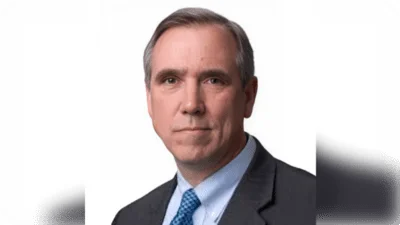The impact of budget cuts rear their head many years after they actually happen - when researchers find incomplete information and Members of Congress receive inadequate services.
Thank you, Chairman Alexander. Dr. Billington, the opportunity to work hand in hand with a remarkable leader of Congress' jewel, the Library of Congress, is one of the main reasons why I enjoy serving on this subcommittee.
It's wonderful to have the opportunity to interact with you in this setting once again. Thank you for your continued service.
Your written testimony highlights the difficulties in maintaining the operations of the Library in light of the cuts of the last several years, and especially as we face the prospect of sequestration.
My concern is that with cultural institutions such as the Library, the impacts of these cuts rear their head many years after they actually happen - when researchers find incomplete information and Members of Congress receive inadequate services.
Many Members of this body speak of the Founding Fathers and the principles of government they established.
We should all be aware of the vision that Thomas Jefferson had for the Library of Congress, our Nation's oldest cultural institution.
Jefferson argued that there was "no subject to which a Member of Congress may not have occasion to refer" as he sold his personal library to the Congress, doubling the size of the Library, after much of the collection had been destroyed by the British.
We've come a long way since then. Nevertheless, Dr. Billington, your challenge during these uncertain budgetary times will be to concisely tell the story of the Library and why its services are so critical.
As you mentioned in your testimony, the Library was able to positively contribute to the US/Afghan relationship by giving the Afghan people historical Afghan records that were lost to them during Taliban rule.
I saw firsthand during a Congressional Delegation visit to Egypt the dedicated Library of Congress staff in that country collecting information that will one day help us fully understand the transformations we are seeing in that country.
During my time as Chair of the subcommittee, I pressed you to think about what programs and services were priorities, the "need to haves" as I then put it, as opposed to the "nice to haves."
The Library's acquisition policy is a major cost driver for storage and preservation and should be looked at with an eye towards reducing out year costs. But cutting at break neck speed for the sake of political gain has caused more harm than any of us should feel comfortable inflicting.
Consider:
• The loss of 24 Congressional Research analysts, which degrades Congress as an institution. As we lose staff in our own offices, CRS is needed more than ever for analysis of legislation and issues of today;
• Increased Copyright Backlogs, which impedes US commerce; and
• The reduction of 50,000 catalog records, which impacts local libraries that rely on these for their own use.
My fear is that this subcommittee will have more expensive projects in 5 years created by the lack of investment today.
My hope is to use the bipartisanship of this subcommittee to protect our institutions as the stewards of our branch of government.
Thank you, Mr. Chairman and I look forward to your testimony, Dr. Billington.
Source: U.S. Department of HCA









